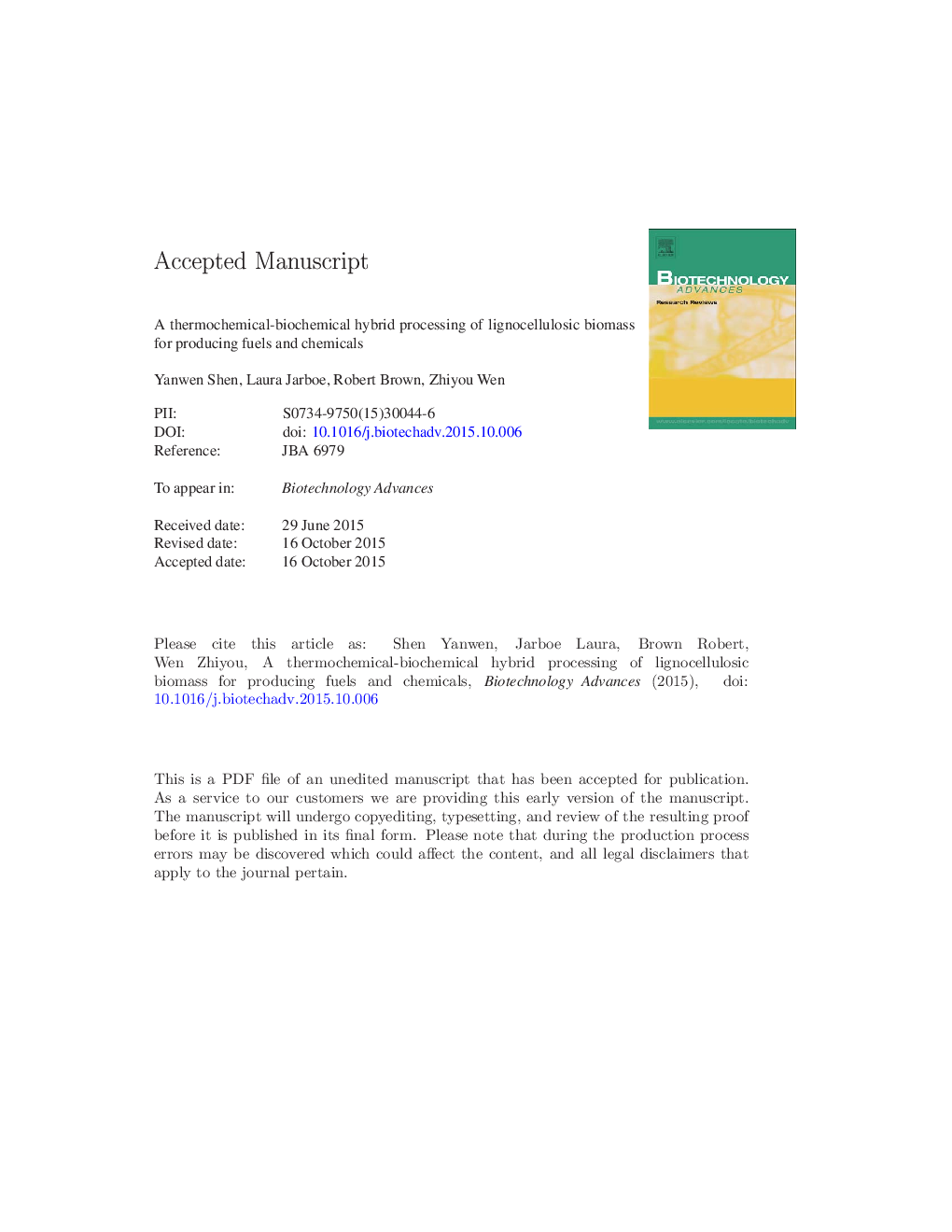| Article ID | Journal | Published Year | Pages | File Type |
|---|---|---|---|---|
| 10231403 | Biotechnology Advances | 2015 | 54 Pages |
Abstract
Thermochemical-biological hybrid processing uses thermochemical decomposition of lignocellulosic biomass to produce a variety of intermediate compounds that can be converted into fuels and chemicals through microbial fermentation. It represents a unique opportunity for biomass conversion as it mitigates some of the deficiencies of conventional biochemical (pretreatment-hydrolysis-fermentation) and thermochemical (pyrolysis or gasification) processing. Thermochemical-biological hybrid processing includes two pathways: (i) pyrolysis/pyrolytic substrate fermentation, and (ii) gasification/syngas fermentation. This paper provides a comprehensive review of these two hybrid processing pathways, including the characteristics of fermentative substrates produced in the thermochemical stage and microbial utilization of these compounds in the fermentation stage. The current challenges of these two biomass conversion pathways include toxicity of the crude pyrolytic substrates, the inhibition of raw syngas contaminants, and the mass-transfer limitations in syngas fermentation. Possible approaches for mitigating substrate toxicities are discussed. The review also provides a summary of the current efforts to commercialize hybrid processing.
Keywords
Related Topics
Physical Sciences and Engineering
Chemical Engineering
Bioengineering
Authors
Yanwen Shen, Laura Jarboe, Robert Brown, Zhiyou Wen,
